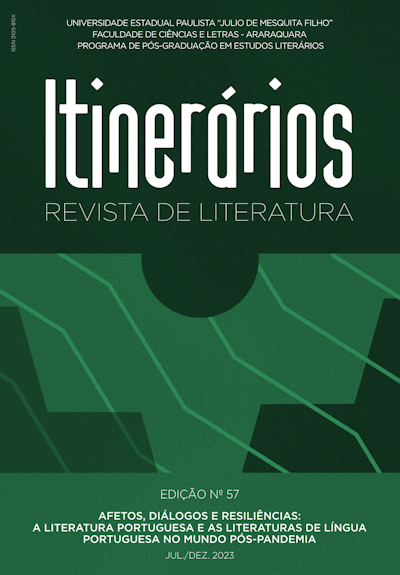Affects and Dialogue in Faria e Sousa’s Comments to Os Lusíadas
Gama’s travel in perspective
DOI:
https://doi.org/10.58943/irl.v1i57.18679Keywords:
Lusíadas, Faria e Sousa, Affections, Dialogue, Gama’s TravelAbstract
A few years after the Commentaries by Manoel Correia (1613) were published, the Lusiadas by Luis de Camoens commented by Manuel de Faria e Sousa (1639) emerge to reinforce and complement the pioneering work of the first Commentator. The small distance that separates these two works, if it is significant in terms of the interest devoted to the epic, is also revealing that the excellence of the poem justified that, in the wake of other authors such as Donato or Sérvio, for example, who had commented on Virgílio, also now Camões received equal recognition, through the pen of Faria e Sousa. This was dictated by, more than the individual interest of the Commentator, the certainty that the reception of the epic would be favored by its exegetical reading. In fact, interpretation, translation, philological research and comparison with different sources, with more or less accentuated relevance, assumed notable proportions, being able to play an important role in disseminating the work of the authors discussed. Guided by the theme of this Congress, we chose two of its terms: affections and dialogue. With the first, we will first analyze the relationship that is established between the Commentator and the commented text or with its author, Luís de Camões, and then we will move on to an intratextual analysis of the affects, as they are evident throughout the journey of the Gamma. As for the dialogue, it will be observed within the scope of the interconnection network of texts that flow into Os Lusíadas or derive from them.
Downloads
Published
Issue
Section
License
Os manuscritos aceitos e publicados são de propriedade da revista Itinerários. É vedada a submissão integral ou parcial do manuscrito a qualquer outro periódico. A responsabilidade do conteúdo dos artigos é exclusiva dos autores. É vedada a tradução para outro idioma sem a autorização escrita do Editor ouvida a Comissão Editorial.

